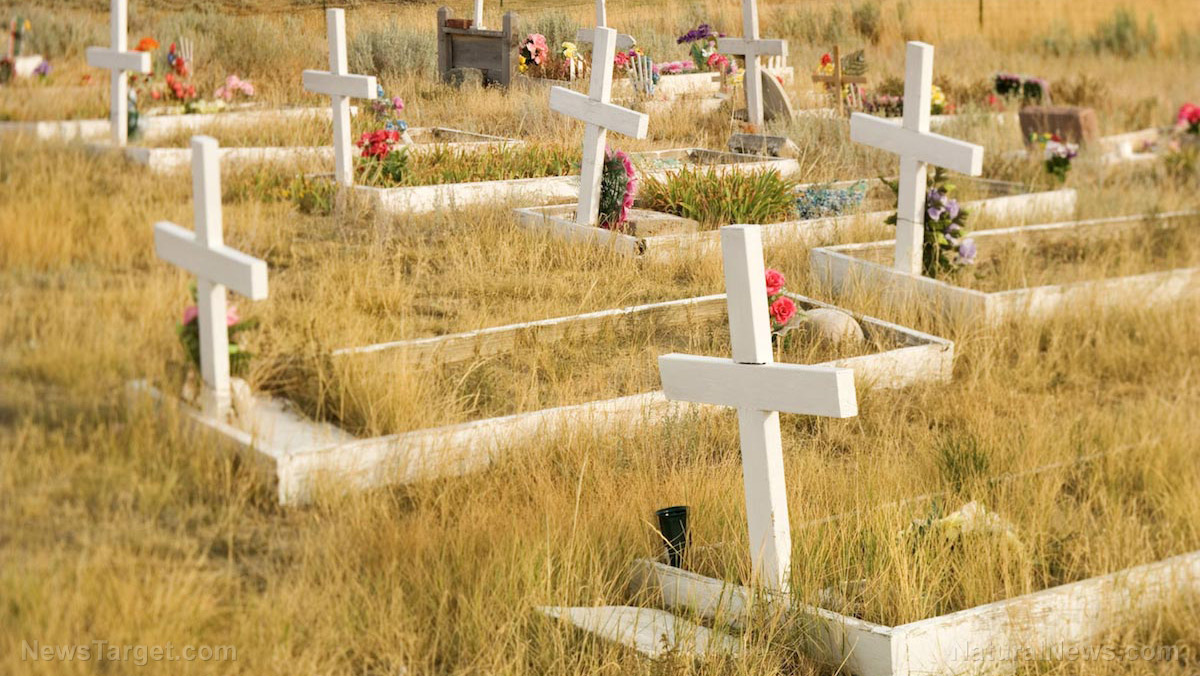THOUSANDS of graves dug in Chile in preparation for coronavirus surge
05/17/2020 / By Franz Walker

Gravediggers in Chile’s capital of Santiago are digging 2,000 fresh graves as the country braces for a surge in Wuhan coronavirus (COVID-19) cases and deaths, authorities confirmed Thursday.
The announcement comes after the country’s infection rate skyrocketed this week, prompting the government to declare a mandatory lockdown of Santiago on Friday.
More deaths expected after cases surge
Chile had previously recorded between 250 and 500 infections a day. On Wednesday, however, a surge of 2,600 infections was registered within a 24-hour period. The same numbers continued to be recorded Thursday.
“We realize that this is a historical moment and that we may need more graves, because we see what’s happened in other countries,” Rashid Saud, director of Santiago’s General Cemetery, told Agence Presse-France.
Unlike other countries, which have resorted to mass graves or stored corpses in refrigerated trucks, the General Cemetery is digging individual graves — 2,000 of them — to prepare for the expected surge in deaths from the pandemic. Prior to this, the pandemic had claimed the lives of 368 people in Chile since March 3.
“We have to contrast it with other countries that have resorted to mass graves, with countries which have had dead people on the streets and rotting corpses in trucks. That is what we want to avoid and hopefully we will not have to use them,” stated Saud.
Bracing for a tough fight
The digging of the graves comes as the Chilean government braces for what may be its toughest month in its fight against the pandemic.
When he announced the city’s quarantine, Health Minister Jaime Manalich stated that the month of May was “proving very tough for our country.”
Manalich stressed the importance of fighting the pandemic in the capital, stating that “the battle for Santiago is THE crucial battle in the war against coronavirus.”
He also assuaged fears that the country’s health system was collapsing, stating that essential equipment was being transferred to important hotspots.
Other countries have resorted to mass graves
With its gravedigging efforts, Santiago looks to try to avoid the issues experienced by other cities struggling with the pandemic. Other cities around the world have not been as fortunate.
New York City, one of the hardest-hit in America, has had to resort to mass graves as cemeteries, funeral homes and crematories get backed up due to the flood of dead bodies. Specifically, the city has been burying unclaimed bodies in Hart Island in the Bronx.
Under a new policy, New York City’s Office of the Chief Medical Examiner keeps bodies of coronavirus victims in storage for only 14 days before they’re given to prison laborers to bury on Hart Island.
Other measures that the city has implemented include allowing crematories to operate for 24 hours a day, or allowing people to be buried out of state.
London has also had to dig mass graves. The British capital had to start doing do after an outbreak hit London’s Muslim community — burials in Islam are usually required to take place 24 hours after death, and cremations are forbidden.
While Santiago does its best to avoid the situation in these other cities, some worry that other Chilean cities may not be able to handle the expected surge in deaths.
Luis Yevenes, head of the cemetery workers’ union, said that he was concerned that other cemeteries would not be able to handle the expected surge in deaths. He specifically mentioned a “lack of capacity” in cemeteries in Valparaiso and Vina del Mar in central Chile, and the cities of Conception and Talcahuano farther south.
Sources include:
Submit a correction >>
Tagged Under:
Chile, coronavirus, covid-19, fatalities, Flu, government, graves, infections, Latin America, mass graves, mortality, outbreak, pandemic, South America, superbugs, virus
This article may contain statements that reflect the opinion of the author
RECENT NEWS & ARTICLES
Infections.News is a fact-based public education website published by Infections News Features, LLC.
All content copyright © 2018 by Infections News Features, LLC.
Contact Us with Tips or Corrections
All trademarks, registered trademarks and servicemarks mentioned on this site are the property of their respective owners.





















